
| Vehicle | Curb weight | Difference from world's smallest | Weight to power ratio | 0—60 mph acceleration ratio | Consumption ratio |
|---|---|---|---|---|---|
| 4.4 V8 |
1855 kg / 4090 lbs |
1430 kg (3153 lbs) heavier | 3 kg to 1 hp | 580 kg/s (1279 lbs/s) |
177 kg/L (390 lbs/L) |
| Competition 4.4 V8 |
1865 kg / 4112 lbs |
1440 kg (3175 lbs) heavier | 3 kg to 1 hp | 602 kg/s (1327 lbs/s) |
174 kg/L (384 lbs/L) |
| Vehicle | 4.4 V8 |
|---|---|
| Curb weight |
1855 kg / 4090 lbs |
| Difference from world's smallest | 1430 kg (1430 lbs) heavier |
| Weight to power ratio | 3 kg to 1 hp |
| 0—60 mph acceleration ratio | 580 kg/s (1279 lbs/s) |
| Consumption ratio |
177 kg/L (390 lbs/L) |
| Vehicle | Competition 4.4 V8 |
| Curb weight |
1865 kg / 4112 lbs |
| Difference from world's smallest | 1440 kg (1440 lbs) heavier |
| Weight to power ratio | 3 kg to 1 hp |
| 0—60 mph acceleration ratio | 602 kg/s (1327 lbs/s) |
| Consumption ratio |
174 kg/L (384 lbs/L) |
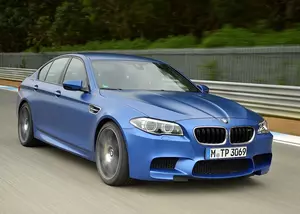
| Vehicle | Curb weight | Difference from world's smallest | Weight to power ratio | 0—60 mph acceleration ratio | Consumption ratio |
|---|---|---|---|---|---|
| 30 Jahre 4.4 V8 |
1870 kg / 4123 lbs |
1445 kg (3186 lbs) heavier | 3 kg to 1 hp | 505 kg/s (1114 lbs/s) |
189 kg/L (417 lbs/L) |
| Vehicle | 30 Jahre 4.4 V8 |
|---|---|
| Curb weight |
1870 kg / 4123 lbs |
| Difference from world's smallest | 1445 kg (1445 lbs) heavier |
| Weight to power ratio | 3 kg to 1 hp |
| 0—60 mph acceleration ratio | 505 kg/s (1114 lbs/s) |
| Consumption ratio |
189 kg/L (417 lbs/L) |

| Vehicle | Curb weight | Difference from world's smallest | Weight to power ratio | 0—60 mph acceleration ratio | Consumption ratio |
|---|---|---|---|---|---|
| 4.4 V8 |
1870 kg / 4123 lbs |
1445 kg (3186 lbs) heavier | 3 kg to 1 hp | 445 kg/s (981 lbs/s) |
189 kg/L (417 lbs/L) |
| Competition Package 4.4 V8 |
1870 kg / 4123 lbs |
1445 kg (3186 lbs) heavier | 3 kg to 1 hp | 456 kg/s (1005 lbs/s) |
189 kg/L (417 lbs/L) |
| Vehicle | 4.4 V8 |
|---|---|
| Curb weight |
1870 kg / 4123 lbs |
| Difference from world's smallest | 1445 kg (1445 lbs) heavier |
| Weight to power ratio | 3 kg to 1 hp |
| 0—60 mph acceleration ratio | 445 kg/s (981 lbs/s) |
| Consumption ratio |
189 kg/L (417 lbs/L) |
| Vehicle | Competition Package 4.4 V8 |
| Curb weight |
1870 kg / 4123 lbs |
| Difference from world's smallest | 1445 kg (1445 lbs) heavier |
| Weight to power ratio | 3 kg to 1 hp |
| 0—60 mph acceleration ratio | 456 kg/s (1005 lbs/s) |
| Consumption ratio |
189 kg/L (417 lbs/L) |
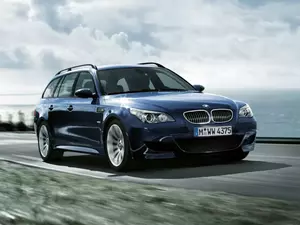
| Vehicle | Curb weight | Difference from world's smallest | Weight to power ratio | 0—60 mph acceleration ratio | Consumption ratio |
|---|---|---|---|---|---|
| 5.0i V10 |
1880 kg / 4145 lbs |
1455 kg (3208 lbs) heavier | 4 kg to 1 hp | 409 kg/s (902 lbs/s) |
129 kg/L (284 lbs/L) |
| Vehicle | 5.0i V10 |
|---|---|
| Curb weight |
1880 kg / 4145 lbs |
| Difference from world's smallest | 1455 kg (1455 lbs) heavier |
| Weight to power ratio | 4 kg to 1 hp |
| 0—60 mph acceleration ratio | 409 kg/s (902 lbs/s) |
| Consumption ratio |
129 kg/L (284 lbs/L) |
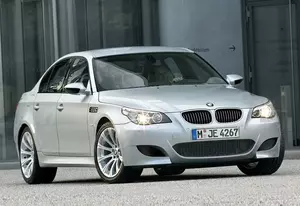
| Vehicle | Curb weight | Difference from world's smallest | Weight to power ratio | 0—60 mph acceleration ratio | Consumption ratio |
|---|---|---|---|---|---|
| 5.0i V10 |
1780 kg / 3925 lbs |
1355 kg (2988 lbs) heavier | 4 kg to 1 hp | 396 kg/s (873 lbs/s) |
124 kg/L (273 lbs/L) |
| Vehicle | 5.0i V10 |
|---|---|
| Curb weight |
1780 kg / 3925 lbs |
| Difference from world's smallest | 1355 kg (1355 lbs) heavier |
| Weight to power ratio | 4 kg to 1 hp |
| 0—60 mph acceleration ratio | 396 kg/s (873 lbs/s) |
| Consumption ratio |
124 kg/L (273 lbs/L) |
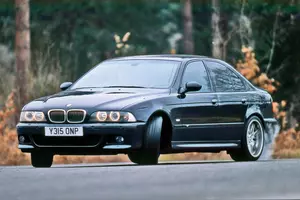
| Vehicle | Curb weight | Difference from world's smallest | Weight to power ratio | 0—60 mph acceleration ratio | Consumption ratio |
|---|---|---|---|---|---|
| 4.9 |
1795 kg / 3958 lbs |
1370 kg (3021 lbs) heavier | 4 kg to 1 hp | 359 kg/s (792 lbs/s) |
129 kg/L (284 lbs/L) |
| Vehicle | 4.9 |
|---|---|
| Curb weight |
1795 kg / 3958 lbs |
| Difference from world's smallest | 1370 kg (1370 lbs) heavier |
| Weight to power ratio | 4 kg to 1 hp |
| 0—60 mph acceleration ratio | 359 kg/s (792 lbs/s) |
| Consumption ratio |
129 kg/L (284 lbs/L) |
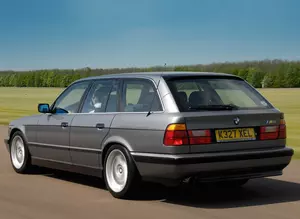
| Vehicle | Curb weight | Difference from world's smallest | Weight to power ratio | 0—60 mph acceleration ratio | Consumption ratio |
|---|---|---|---|---|---|
| 3.8 |
1720 kg / 3793 lbs |
1295 kg (2856 lbs) heavier | 5 kg to 1 hp | 307 kg/s (677 lbs/s) |
170 kg/L (375 lbs/L) |
| Vehicle | 3.8 |
|---|---|
| Curb weight |
1720 kg / 3793 lbs |
| Difference from world's smallest | 1295 kg (1295 lbs) heavier |
| Weight to power ratio | 5 kg to 1 hp |
| 0—60 mph acceleration ratio | 307 kg/s (677 lbs/s) |
| Consumption ratio |
170 kg/L (375 lbs/L) |
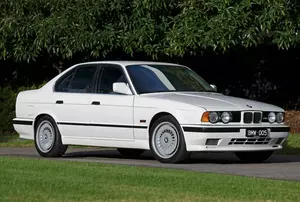
| Vehicle | Curb weight | Difference from world's smallest | Weight to power ratio | 0—60 mph acceleration ratio | Consumption ratio |
|---|---|---|---|---|---|
| 3.5 |
1670 kg / 3682 lbs |
1245 kg (2745 lbs) heavier | 5 kg to 1 hp | 278 kg/s (613 lbs/s) |
178 kg/L (392 lbs/L) |
| 3.8 |
1650 kg / 3638 lbs |
1225 kg (2701 lbs) heavier | 5 kg to 1 hp | 295 kg/s (650 lbs/s) |
172 kg/L (379 lbs/L) |
| Vehicle | 3.5 |
|---|---|
| Curb weight |
1670 kg / 3682 lbs |
| Difference from world's smallest | 1245 kg (1245 lbs) heavier |
| Weight to power ratio | 5 kg to 1 hp |
| 0—60 mph acceleration ratio | 278 kg/s (613 lbs/s) |
| Consumption ratio |
178 kg/L (392 lbs/L) |
| Vehicle | 3.8 |
| Curb weight |
1650 kg / 3638 lbs |
| Difference from world's smallest | 1225 kg (1225 lbs) heavier |
| Weight to power ratio | 5 kg to 1 hp |
| 0—60 mph acceleration ratio | 295 kg/s (650 lbs/s) |
| Consumption ratio |
172 kg/L (379 lbs/L) |
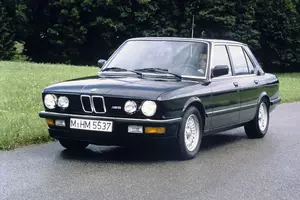
| Vehicle | Curb weight | Difference from world's smallest | Weight to power ratio | 0—60 mph acceleration ratio | Consumption ratio |
|---|---|---|---|---|---|
| 3.5 |
1430 kg / 3153 lbs |
1005 kg (2216 lbs) heavier | 5 kg to 1 hp | 231 kg/s (509 lbs/s) | - |
| Vehicle | 3.5 |
|---|---|
| Curb weight |
1430 kg / 3153 lbs |
| Difference from world's smallest | 1005 kg (1005 lbs) heavier |
| Weight to power ratio | 5 kg to 1 hp |
| 0—60 mph acceleration ratio | 231 kg/s (509 lbs/s) |
| Consumption ratio | - |
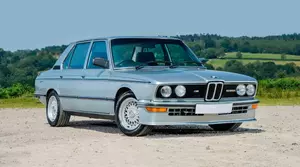
| Vehicle | Curb weight | Difference from world's smallest | Weight to power ratio | 0—60 mph acceleration ratio | Consumption ratio |
|---|---|---|---|---|---|
| 3.5i |
1390 kg / 3065 lbs |
965 kg (2128 lbs) heavier | 6 kg to 1 hp | 204 kg/s (450 lbs/s) | - |
| Vehicle | 3.5i |
|---|---|
| Curb weight |
1390 kg / 3065 lbs |
| Difference from world's smallest | 965 kg (965 lbs) heavier |
| Weight to power ratio | 6 kg to 1 hp |
| 0—60 mph acceleration ratio | 204 kg/s (450 lbs/s) |
| Consumption ratio | - |